Nasdaq forecasts that 95% of purchases will be made online by 2040. Statistics also say that the global e-commerce market is expected to reach $18.89 trillion by 2027, compared to $5 trillion in 2021.
As the market grows and buyers’ experience becomes more digitized, only tech-savvy businesses will be able to survive the competition.
Therefore, today many online businesses are looking for platforms to help them engage with their potential customers without the need for hiring a team of developers to maintain their website.
Salesforce Commerce Cloud has proved to be one of the best solutions available today. It promises to radically transform the way e-commerce businesses are managed.
Below we explain what Salesforce Commerce Cloud is, highlighting the components of Commerce Cloud that raise the most questions and combining them into one concise article.
What is Salesforce Commerce Cloud?

Old-fashioned marketing ploys no longer work on modern customers. Therefore, if you decide your business needs a fresh start, now is the perfect time to implement an intelligent Salesforce Commerce Cloud, a cloud-based software as a service (SaaS) solution that offers simplified e-commerce integration for small to medium businesses and large enterprises.
The platform is really sophisticated, providing an intelligent 1:1 personalization of the shopping experience. The multichannel architecture allows shoppers to easily move within the brand's web and mobile ecosystems and get what they are looking for with just a few clicks.
To get a feel for the popularity of Salesforce Commerce Cloud, you can check out the long list of satisfied customers: Brands such as Adidas, L’Oreal, Ralph Lauren, Ecco, and Columbia are among the many proud clients whose revenues have skyrocketed thanks to this platform.
And now for the details.
Salesforce Commerce Cloud Hosting
What makes the platform stand out from Salesforce Commerce Cloud competitors is that it eliminates the need to acquire web hosting. The team will take care of all the technical aspects so that you can focus on your business strategies.
Turn Your Website Traffic into Orders and Repeat Customers

Customer data is stored on a primary database server. Like Google, Microsoft, or Amazon web services, Salesforce has multiple data centers across the globe. All records—up to the last transaction—are automatically replicated to a second location for high availability and performance.
Salesforce Commerce Cloud Performance

Adidas, for instance, has worked with Salesforce since 2011, reaching €23 billion in net sales according to its latest annual report.
Rituals, the number one bath-and-body brand in Europe, is also growing its business empire using Salesforce Commerce Cloud. The company grew its online business by 70% in just one year, providing a rich digital experience that includes click-and-collect data capture, real-time inventory, next-day delivery, local payment options, and dynamic brand content.
And the list of successful performance stories continues.
Salesforce Commerce Cloud Scalability
Scalability can be defined as the ability of a system to expand its resources as the amount of data and traffic increases.
You might be wondering whether your platform can handle an increasing number of users.
With Salesforce Commerce Cloud, the answer is a resounding yes. It is a highly scalable solution that can easily handle millions of users daily. The Salesforce team quietly scales websites behind the scenes with no system downtime.
And here is how the Salesforce team answers customer inquiries about scalability issues.
Customer: Will I see a decrease in performance as Salesforce’s subscriber base grows?
Salesforce Help Desk: “We are very conscious of performance and have designed the service to be scalable in such a way that we can constantly stay ahead of customer demand. Our architecture allows us to easily add web and application servers to accommodate more users. The system architecture also allows us to add more database servers as needed to accommodate more users. In addition, the facility that houses our servers provides us with guaranteed bandwidth, which we can increase as needed.”
So, as a retailer, you can be sure that your online store will work without sacrificing performance, as the platform’s multi-tenant architecture provides more resources for expanding your business.
If you’d like to learn more about website scaling capabilities, do not hesitate to contact Salesforce’s tech consultants. They can provide you with up-to-date information on all the technical aspects of the platform.
Salesforce Commerce Cloud Pricing
The Salesforce Commerce Cloud pricing model is based on shared success, which means the vendor is incentivized to help you succeed. In short, if your business grows, they grow as well. In addition, they offer important data insights and provide valuable support service for your business through their customer success management (CSM) system.
But as in any business, there has to be a caveat somewhere. In the case of Salesforce Commerce Cloud, it is an up-front annual fee with some serious zeros. The actual cost depends on many factors, but according to the latest information, it will cost you on average around $150,000 a year. Let's face it: When it comes to serving the best of the best, a financial threshold is necessary to ensure the highest standards of service.
Depending on what kind of business you run, there are two core products available:
B2B Commerce allows businesses to process a large number of orders while enabling efficient scalability and a smooth online experience. It powers sites for many of the world’s largest companies in industries such as manufacturing, retail, technology, and health care.
B2C Commerce facilitates more personalized interactions. The solution merges websites, social media channels, email, and physical stores. Such multi-channeling boosts customer engagement and increases brand loyalty.
In addition, there are editions available for both B2B and B2C: Starter, Growth, and Plus.
So, let's compare the top features to get a clearer picture of their differences.
B2B Commerce Starter includes 1 storefront, 7,500 SKUs, and an additional 20 MB of cache storage. Not included are multi-channel orders and additional APIs.
B2B Commerce Growth includes 5 storefronts, 75,000 SKUs, 1 API call per order, an additional 40 MB of cache storage, and multi-channel orders.
B2B Commerce Plus includes 10 storefronts, 750,000 SKUs, 2 API calls per order, an additional 80 MB of cache storage, and multi-channel orders.
B2C Commerce Starter includes 1 site, 2 price books, an on-demand sandbox, and 750K credits.
B2C Commerce Growth includes 5 sites,10 price books, an on-demand sandbox, and 1.2M credits.
B2C Commerce Plus includes unlimited sites, unlimited price books, an on-demand sandbox, and 2.0M credits.
You can also extend your capabilities by selecting different add-ons that will work specifically for your business. Check out add-on pricing here. Please note that to receive a direct price quote on some features, you will still have to contact Salesforce. During the consultation, you will get up-to-date information and discuss which solution suits your business the most.
Salesforce provides e-commerce businesses with many of the essential tools for planning, launching, marketing, and tracking data.
Let’s quickly go over the core Salesforce Commerce Cloud features, including those that we mentioned above.
Salesforce Commerce Cloud Features
-
personalized user experiences (targeted promotion management, multiple catalogs for different customers, personalized promotions and coupons, multi-account and contract ordering, responsive design for optimized mobile experiences)
-
advanced ordering capabilities (products (SKUs), ordering on behalf of sales and service, quick-order and reorder templates, subscriptions, multiple carts, and multiple payment methods, including PO, tax integration, and split shipments across multiple locations)
-
enhanced search functionality (site search, guided navigation, and search engine optimization)
-
localization for your site (currency localization, language localization, global support, global scalability, security, performance, and hosting)
-
customized experience with platform features (order history, a single view of your customer, RESTful APIs with componentized services, Lightning Flow automation, additional platform cache storage, platform development, real-time dashboards and reports, and multi-channel orders)
For the B2C Commerce edition:
- premium commerce experiences (a powerful commerce platform, mobile commerce, a number of sites, price books, and on-demand sandboxes)
- implemented innovations (a full-featured reference application that includes a shopping cart, checkout, and certified integrations)
- best-in-class marketing tools (merchandising and marketing tools, native targeting and A/B testing, catalog and pricing management, campaigns and content management, site search and guided navigation, and search engine optimization)
- additional features that drive growth (global scalability, security and performance, multi-site management and localization, and AI-powered experiences and business tools)
To conclude, let’s highlight the main benefits the platform offers to online businesses.
Key Strengths of Salesforce Commerce Cloud

Salesforce Commerce Cloud is a SaaS-based, multi-tenant platform, the technical part of which is fully managed by the Salesforce team. From server maintenance to security patching, everything is handled with the help of their own resources.
Now online retailers can reach their customers in a more personalized way, as AI-powered Einstein provides a 1:1-level personalized customer experience.
Also, Einstein Analytics makes it possible to increase your average order value (AOV). New products are showcased properly, and what’s more, you receive essential information on less popular items so that you can manage orders properly.
While integrated A/B testing expands merchandising capabilities, localization features allow you to use native multi-currency, language, and storage options.
Also important is the user-friendly interface, which distinguishes Salesforce Commerce Cloud from its competitors. In order to serve customers even better, it is crucial to have a mobile-friendly store. Salesforce handles this issue brilliantly, as the platform’s architecture was designed using a mobile-first approach.
Its strong omni-channel features simplify order and content management. The Lightning Order Management feature allows you to visually manage multiple workflows at the same time, while Einstein showcases the most relevant information based on the user’s geographical location, helping you reach your target audience more efficiently.
Last but not least, by integrating the Endless Aisle feature, you can unify online and physical stores, leaving your customers happy in case a product was out of stock at a specific location. With this add-on, you can easily ship the necessary item to their home address or to the closest in-store pickup location. This solution boosts your sales and ensures customer satisfaction.
About Brimit
Brimit is a Certified Salesforce Partner with expertise in creating high-performance e-commerce solutions. We provide Salesforce Commerce Cloud consulting services to help B2B and B2C sellers create personalized customer experiences and expand their online presence. We share our experience with companies planning to move to Commerce Cloud, get the most out of its products, or extend the capabilities of the Cloud.
